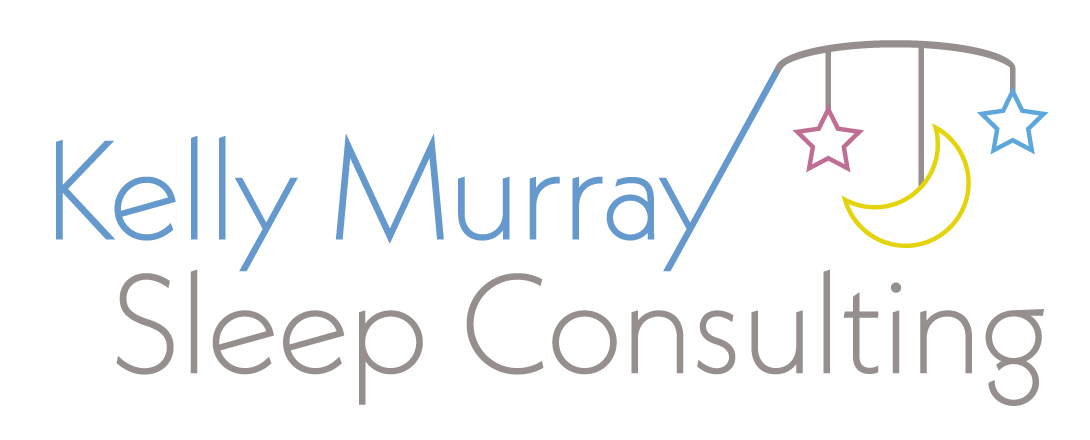Today I’m going to talk to you about something that all parents dread:
The Sleep Regression
Unfortunately, sleep regressions cannot be avoided. However, I find that it's very helpful to understand why you're seeing what you're seeing, and to have a game plan for how to handle the regression. That way, you can better cope, maintain your sanity, as well as come out the other side without creating a bad habit that will need to be broken in the future.
You know you're in the midst of a sleep regression when your child is typically a good little sleeper, and then all of a sudden, things take a turn for the worst.
They may start waking up early. They may start waking up more frequently in the middle of the night. They may start having a hard time falling asleep at bedtime or naptime. Or they may start skipping naps. Or taking short naps.
Sounds like fun, huh? Not so much.
But don't worry, as I mentioned, sleep regressions are normal, and unfortunately, they usually happen every few months when you have a child under two.
The sleep regressions I typically see with my clients happen at 4 months, 8 months, 12 months, 18 months, and 2 years.
Sleep regressions are typically a result of a child reaching a developmental milestone.
Although sleep regressions are completely exhausting for parents and very frustrating, they should be somewhat celebrated! I know it sounds crazy, but it's true. It means your child is developing well! What's happening is they're working on a new skill and they become super excited to practice. So instead of sleeping, they want to be awake so they can work on whatever new skill they're currently mastering.
The good news is that sleep regressions don't last forever. It typically takes a child about two-to-four weeks to master a new skill, and as long as you don't introduce any bad habits, they should go right back to being a great little sleeper.
Let’s get to the most important question...
How do I get my child to get back to sleep?
Let’s break it down by age:
The 4 Month Sleep Regression
The first sleep regression that a baby typically hits is a doozy. I like to call it the infamous 4 month sleep regression.
What typically happens during this regression is your baby will go from maybe waking up once to feed, possibly twice, to waking up every two hours needing assistance to fall back to sleep. This regression is a little bit different from others, because it isn't the result of the child working on a developmental milestone. Instead, it's caused by their sleep reorganizing and becoming more adult-like.
It’s really a progression.
Around the three month mark, babies start sleeping in cycles that resemble those of adults, where they're going from light to deep sleep, and after a cycle is completed, there's a little wakeup. So during that little wakeup, if your baby doesn’t know how to fall asleep independently, then they’re not going to know what to do (cue 2AM angry cries) — and they’re going to depend on whatever method they’re used to receiving from you to put them to sleep. So if you put your child to sleep by either rocking, feeding, bouncing, maybe standing on your head (whatever it takes, right?), then they need you to repeat the bedtime routine so that they can fall back to sleep.
The answer to the chaos? Sleep training.
The gift you can give yourself and your child to ease through this transition is to teach them how to fall asleep independently without a prop (i.e. without a feed or without rocking, without holding, etc.) so that in between sleep cycles, they're not looking for assistance. To learn more about this sleep regression, check out my blog post Surviving the Infamous Sleep Regression, and also check out my blog post about what sleep training is. In it, I break down the four main methods of sleep training so that you can choose a method you can stick with and stay consistent. Then, you can teach your child to be an independent sleeper — and as a result, your child is going to be ready to string those sleep cycles together when the time comes (hallelujah!), and go back to pretty much sleeping through the night.
The 8 Month Sleep Regression
The next sleep regression I typically see is around 8 months.
Now, this is a more typical sleep regression because it's caused by a developmental milestone. Around the 8 month mark, your baby's becoming more mobile. They're scooting, they're crawling, they may be pulling themselves up on furniture, perhaps couch surfing, and this creates a lot of excitement, to the point where they're not going to want to sleep. So the best thing to do during this regression is to allow your child to practice their newfound skills.
Practice, practice, practice.
Practice as much as you can during the day, so that your baby can get it out of their system while they’re awake, instead of when they’re supposed to be sleeping.
Check the naps.
You may also want to take a look at your baby's napping schedule. Around this time, babies typically go from taking three naps a day to two naps a day.
Don’t become a prop.
You also want to make sure that you're not assisting your baby with falling back to sleep. So if your child wakes up in the middle of the night, or wakes up early, or wakes up prematurely from a nap, do not put your baby back to sleep if you've already sleep trained and your baby has independent sleep skills. Because if you do, your child is going to form a new sleep association and you're going to have to do sleep training again.
The 12 Month Sleep Regression
Now this is a common one. I have to say, 9 times out of 10, when I work with a client whose baby is under 12 months, I typically hear back from them when their baby reaches a year, and it’s because the baby starts to refuse the second nap or starts to wake up early. Now, this doesn't mean that the baby is ready to move to one nap. They usually don't move to a one-nap schedule until they're closer to 14 months. (Not sure when to transition? You can learn more about the one-nap sleep schedule here→)
Don’t change the naps!
If you're going through the 12 month sleep regression right now, I want you to hold onto the two nap schedule. Then, I want you to shift the entire schedule later by about 30 minutes. That way, your child has a little bit more sleep pressure and a stronger drive to fall asleep — and stay asleep.
Get moving.
In addition, your child is probably learning to walk, which is why they're going through this regression in the first place. So again, make sure that you're giving your baby plenty of opportunity to walk. Walk, walk, walk everywhere. Make sure that they're on the ground, able to move those muscles, and master walking.
Lastly... do not put your baby to sleep if they skip their second nap!
And last but not least, like all regressions, do not — and I repeat, do not — put your baby to sleep if they skip their second nap. Instead, just chalk it up to the 1-year sleep regression, and move bedtime up by about an hour so that they're not going down overtired. Because if your child goes down overtired, they're going to be more prone to early morning wakeups, which we don't want. They're pretty infamous at this age for waking up early to begin with, because, again, they're excited to practice walking, so avoid an overtired baby at all costs!
For more information about the 12-month sleep regression and how to tell when your baby is, indeed, ready to move to a one-nap schedule, check out my blog post that’s all about one nap transition readiness.
The 18 Month Sleep Regression
Once your baby reaches that year mark, you tend to think that the sleep regressions are behind you. But unfortunately, they're not!
Maintain boundaries.
It is common for an 18 month sleep regression to happen. This one is different from previous regressions as it's not tied to the child's newfound mobility. Instead, it's because the baby is becoming a toddler. And a toddler's job is to find their independence. So, they're going to push the boundaries — because they want to see where your control ends, and theirs begins. During this sleep regression, it’s important to maintain the boundaries. If your child is falling asleep independently, don't change a thing. Allow them to fall asleep independently. Even if they're protesting, resist the urge to rock to sleep, or feed to sleep. Let your toddler fall asleep independently.
Be flexible.
At naptime, if they're wanting to skip a nap, (which may happen, that's okay), I would recommend leaving your toddler in their crib for at least an hour. If the nap doesn't happen, just chalk it up to the old 18 month sleep regression, and move bedtime up by an hour. And just know that in a few weeks, it's going to disappear.
Stand firm with your boundaries. Because if you give your toddler an inch, they're going to take a mile. And then you're going to create some bad habits.
Some separation anxiety may be at play.
The 18 month regression can also be the result of some separation anxiety. Unfortunately around this age, a child's separation anxiety becomes elevated again. So if you sense that your child is going through a period of separation anxiety, I would engage in some activities to show your child that you're always going to reappear. Maybe play a little bit of peekaboo during the day. Maybe some hide and seek. Also, at naptime and bedtime, you can tell your child that you'll be right back and do some checks. That way, you can maintain that secure attachment.
The 2 Year Sleep Regression
The last sleep regression I want to cover is the 2 year sleep regression. This sleep regression typically impacts naptime more so than night sleep. What you'll see is you'll put your child down for their nap and they'll want to talk, talk, talk, and sleep won't happen. That's because they're learning to string simple words together to create sentences. Again, just know that it's normal. Let them talk. If they don't sleep, move bedtime up by an hour.
When it comes to sleep regression it’s important to keep in mind a few simple truths:
Your baby’s not broken. Your parenting isn't broken. Sleep Regressions are normal.
Sleep regressions can be troubling to any parent that is currently contending with one. The best thing to do is just to keep in mind that it's normal. It means that your child is developing well! And remember that this, too, shall pass. It typically takes about two-to-three weeks, and then it will be a thing of the past. So while you're going through a sleep regression, my best piece of advice is to maintain independent sleep.
LET’S GET YOU TUCKED IN
If you've gone through a sleep regression, or are currently going through one, and you've introduced some new props such as feeding, rocking, maybe sitting in the room, and you're having a hard time breaking those associations, please get in touch. We would be happy to help you. Schedule your free 15-minute discovery call right here→
















